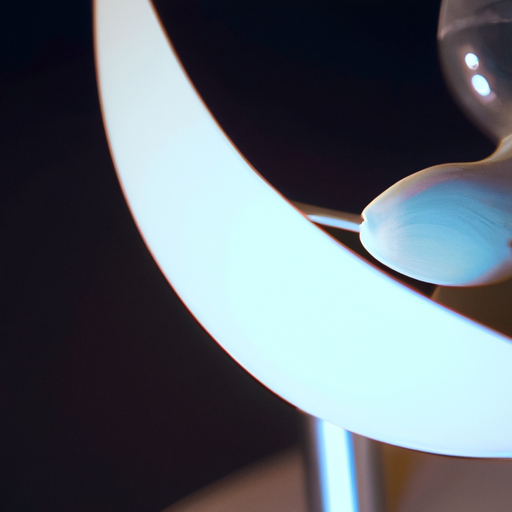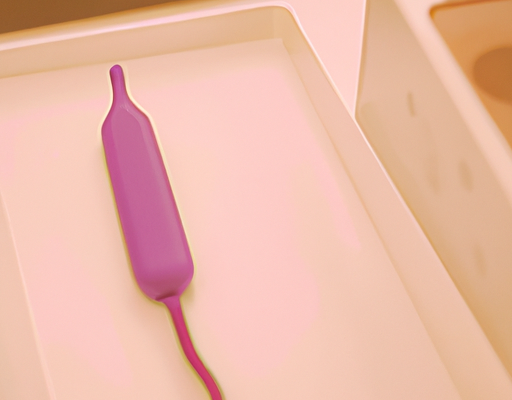“Explore the Possibilities: Masturbation and Fertility, A Journey of Discovery!”
Introduction
Female masturbation is a topic that is often overlooked and not discussed openly. While there is no scientific evidence that suggests that female masturbation causes infertility, it is important to understand the potential risks associated with it. This article will discuss the potential risks of female masturbation and how it may affect fertility. Additionally, it will provide information on how to safely masturbate and the potential benefits of doing so.
The Science Behind Female Masturbation and Its Impact on Fertility
Female masturbation is a topic that has been largely overlooked in the scientific community. However, recent research has begun to shed light on the potential benefits of female masturbation and its impact on fertility.
The female reproductive system is complex and involves a variety of hormones and processes. Masturbation can have a positive effect on the female reproductive system by helping to regulate hormones and improve blood flow to the reproductive organs. This can help to reduce stress and improve overall health.
Masturbation can also help to increase the production of oxytocin, a hormone that is important for fertility. Oxytocin helps to regulate the menstrual cycle and can help to increase the chances of conception. Additionally, oxytocin can help to reduce the risk of miscarriage and can help to improve the quality of the uterine lining, which is important for implantation.
Masturbation can also help to reduce the risk of pelvic inflammatory disease, which is a common cause of infertility. This is because it helps to reduce the amount of bacteria in the vagina, which can lead to infection. Additionally, masturbation can help to reduce the risk of endometriosis, which is a condition that can cause infertility.
Finally, masturbation can help to improve sexual pleasure and satisfaction. This can help to increase the chances of conception, as it can help to increase the chances of achieving orgasm. Additionally, it can help to reduce the risk of sexually transmitted infections, which can also lead to infertility.
Overall, female masturbation can have a positive impact on fertility. It can help to regulate hormones, improve blood flow to the reproductive organs, and reduce the risk of pelvic inflammatory disease and endometriosis. Additionally, it can help to improve sexual pleasure and satisfaction, which can increase the chances of conception. Therefore, it is important for women to understand the potential benefits of masturbation and to incorporate it into their reproductive health routine.
Exploring the Link Between Female Masturbation and Infertility
Female masturbation is a topic that is often overlooked in discussions about infertility. However, recent research has suggested that there may be a link between female masturbation and infertility. This article will explore the potential connection between female masturbation and infertility, as well as the implications of this connection.
First, it is important to understand the basics of female masturbation. Female masturbation is the act of stimulating one’s own genitals for sexual pleasure. This can be done manually, with the use of sex toys, or through the use of vibrators. Female masturbation is a healthy and normal part of sexual expression, and it can be beneficial for both physical and mental health.
Recent research has suggested that there may be a link between female masturbation and infertility. One study found that women who masturbated more frequently were more likely to experience infertility than those who did not. This suggests that frequent masturbation may have a negative effect on fertility.
The exact mechanism behind this link is not yet known. However, it is possible that frequent masturbation may lead to changes in hormone levels, which can affect fertility. Additionally, it is possible that frequent masturbation may lead to changes in the vaginal environment, which can also affect fertility.
It is important to note that this research is still in its early stages, and more research is needed to fully understand the potential link between female masturbation and infertility. Additionally, it is important to remember that female masturbation is a healthy and normal part of sexual expression, and it should not be discouraged.
In conclusion, there may be a link between female masturbation and infertility. However, more research is needed to fully understand the potential connection between the two. Additionally, it is important to remember that female masturbation is a healthy and normal part of sexual expression, and it should not be discouraged.
How Female Masturbation Can Affect Fertility
Female masturbation can have an effect on fertility, although the exact nature of this effect is not fully understood. It is known that female masturbation can cause changes in hormone levels, which can in turn affect fertility.
The hormones released during masturbation can affect the menstrual cycle, which can have an impact on fertility. For example, if a woman masturbates frequently, it can lead to an increase in the production of the hormone prolactin, which can cause a decrease in the production of other hormones such as estrogen and progesterone. This can lead to irregular menstrual cycles, which can make it more difficult to conceive.
In addition, female masturbation can also lead to an increase in the production of the hormone oxytocin. This hormone is known to be involved in the regulation of the menstrual cycle, and an increase in its production can lead to a decrease in the production of other hormones such as estrogen and progesterone. This can also lead to irregular menstrual cycles, which can make it more difficult to conceive.
Finally, female masturbation can also lead to an increase in the production of the hormone cortisol. This hormone is known to be involved in the regulation of stress levels, and an increase in its production can lead to an increase in stress levels. This can lead to an increase in the production of other hormones such as estrogen and progesterone, which can make it more difficult to conceive.
Overall, female masturbation can have an effect on fertility, although the exact nature of this effect is not fully understood. It is known that female masturbation can cause changes in hormone levels, which can in turn affect fertility. It is important to note that these effects are not necessarily permanent, and that they can be reversed with lifestyle changes such as reducing stress levels and avoiding excessive masturbation.
The Pros and Cons of Female Masturbation and Its Impact on Fertility

Female masturbation is a topic that is often overlooked or considered taboo. However, it is an important part of a woman’s sexual health and can have a significant impact on fertility. This article will discuss the pros and cons of female masturbation and its impact on fertility.
The Pros of Female Masturbation
There are many benefits to female masturbation. It can help to reduce stress and anxiety, improve sleep, and increase self-esteem. It can also help to increase sexual pleasure and satisfaction, as well as improve overall sexual health. Masturbation can also help to increase blood flow to the pelvic area, which can help to improve fertility.
The Cons of Female Masturbation
Although there are many benefits to female masturbation, there are also some potential risks. For example, it can lead to an increased risk of urinary tract infections, as well as an increased risk of sexually transmitted infections. Additionally, it can lead to an increased risk of cervical cancer if done too frequently.
Impact on Fertility
Masturbation can have a positive impact on fertility. It can help to increase blood flow to the pelvic area, which can help to improve fertility. Additionally, it can help to reduce stress and anxiety, which can also help to improve fertility. However, it is important to note that excessive masturbation can lead to an increased risk of cervical cancer, so it is important to practice moderation.
In conclusion, female masturbation can have both positive and negative impacts on fertility. It can help to reduce stress and anxiety, improve sleep, and increase self-esteem. Additionally, it can help to increase blood flow to the pelvic area, which can help to improve fertility. However, it is important to practice moderation and be aware of the potential risks associated with excessive masturbation.
What You Need to Know About Female Masturbation and Its Impact on Fertility
Female masturbation is a healthy and natural activity that can have a positive impact on fertility. It can help to reduce stress, improve self-esteem, and increase sexual pleasure. However, it is important to understand the potential effects of masturbation on fertility in order to make informed decisions about sexual health.
Masturbation does not directly affect fertility, but it can have an indirect impact. For example, masturbation can help to reduce stress, which can have a positive effect on fertility. Stress can interfere with the body’s ability to produce hormones necessary for conception, and reducing stress can help to improve fertility. Additionally, masturbation can help to increase blood flow to the pelvic area, which can improve the chances of conception.
Masturbation can also help to improve self-esteem and body image, which can have a positive effect on fertility. Women who feel good about themselves and their bodies are more likely to be open to the idea of becoming pregnant. Additionally, masturbation can help to increase sexual pleasure, which can make sex more enjoyable and increase the chances of conception.
It is important to note that masturbation should not be used as a substitute for sexual intercourse. Masturbation should be used in addition to sexual intercourse in order to increase the chances of conception. Additionally, it is important to practice safe masturbation in order to reduce the risk of sexually transmitted infections.
In conclusion, female masturbation is a healthy and natural activity that can have a positive impact on fertility. It can help to reduce stress, improve self-esteem, and increase sexual pleasure. However, it is important to understand the potential effects of masturbation on fertility in order to make informed decisions about sexual health.
How to Balance Masturbation and Fertility for Women
Masturbation is a normal and healthy part of a woman’s sexual life. However, when it comes to fertility, it is important to be mindful of how often you are engaging in this activity. Too much masturbation can lead to a decrease in fertility, while too little can lead to a decrease in sexual satisfaction. Here are some tips to help you balance masturbation and fertility:
1. Monitor your frequency: Pay attention to how often you are masturbating and try to keep it to a reasonable level. If you find yourself masturbating more than once a day, it may be time to cut back.
2. Take breaks: If you find yourself masturbating too often, take a break for a few days or weeks. This will give your body time to recover and may help to increase your fertility.
3. Use lubricants: If you are using lubricants during masturbation, make sure they are fertility-friendly. Some lubricants can decrease fertility, so it is important to choose ones that are specifically designed for fertility.
4. Talk to your doctor: If you are concerned about your fertility, talk to your doctor. They can provide advice and guidance on how to balance masturbation and fertility.
By following these tips, you can ensure that you are engaging in healthy masturbation habits that will not interfere with your fertility.
Common Myths About Female Masturbation and Its Impact on Fertility
There are many myths surrounding female masturbation and its impact on fertility. Unfortunately, these myths can lead to feelings of guilt and shame, and can even prevent women from exploring their own bodies and understanding their own sexual pleasure. It is important to understand the truth behind these myths in order to dispel any misconceptions and to ensure that women can enjoy their sexuality without fear or guilt.
Myth 1: Masturbation causes infertility.
This is simply not true. Masturbation does not cause infertility in any way. In fact, it can actually help to improve fertility by increasing blood flow to the reproductive organs and helping to reduce stress.
Myth 2: Masturbation is unnatural.
Masturbation is a perfectly natural and healthy activity. It is a normal part of human sexuality and has been practiced by people throughout history.
Myth 3: Masturbation is only for men.
Masturbation is not just for men. Women can also enjoy the pleasure and health benefits of masturbation.
Myth 4: Masturbation is wrong or immoral.
Masturbation is not wrong or immoral. It is a perfectly natural and healthy activity that can help to improve physical and mental health.
Myth 5: Masturbation leads to promiscuity.
Masturbation does not lead to promiscuity. It is a private activity that does not involve any other person.
By understanding the truth behind these myths, women can feel more comfortable exploring their own bodies and understanding their own sexual pleasure. Masturbation is a perfectly natural and healthy activity that can help to improve physical and mental health, and it does not have any negative impact on fertility.
Conclusion
In conclusion, there is no scientific evidence to suggest that female masturbation causes infertility. While it is possible that excessive masturbation may lead to physical or psychological issues that could affect fertility, this is not a direct result of masturbation itself. Therefore, it is important to practice moderation and to seek medical advice if any concerns arise.











